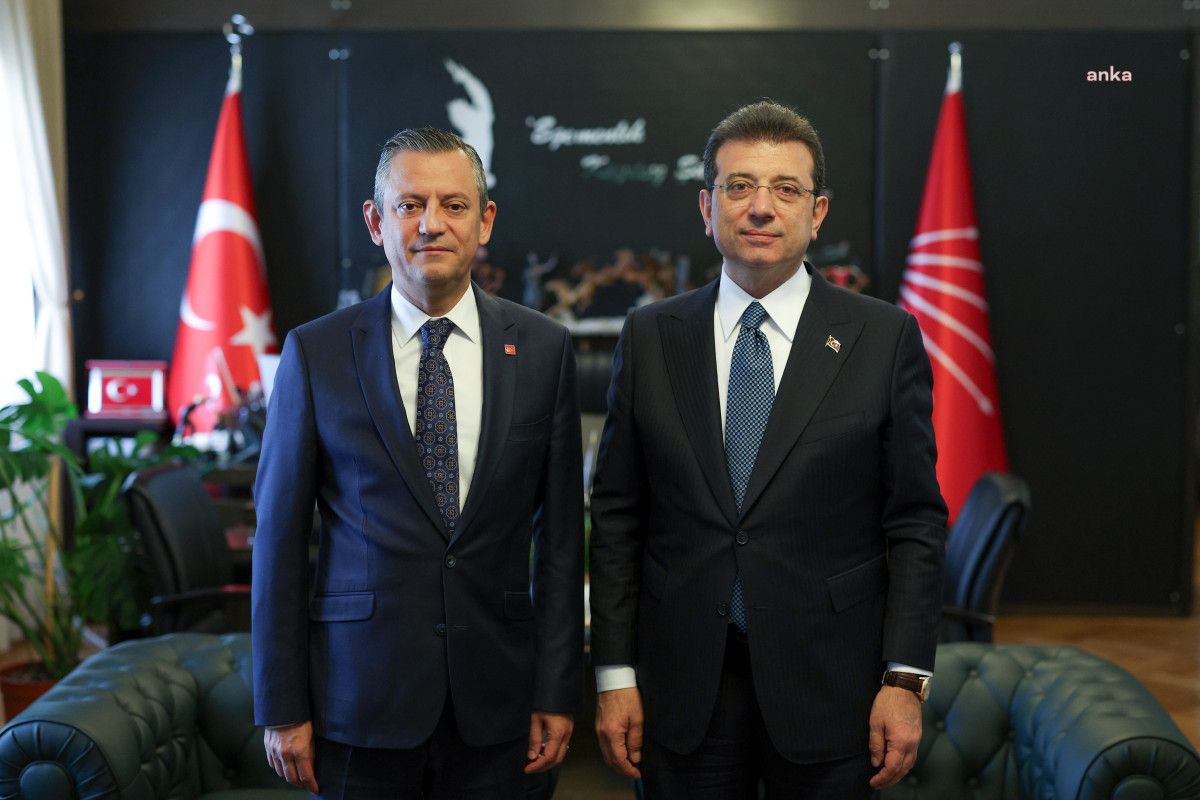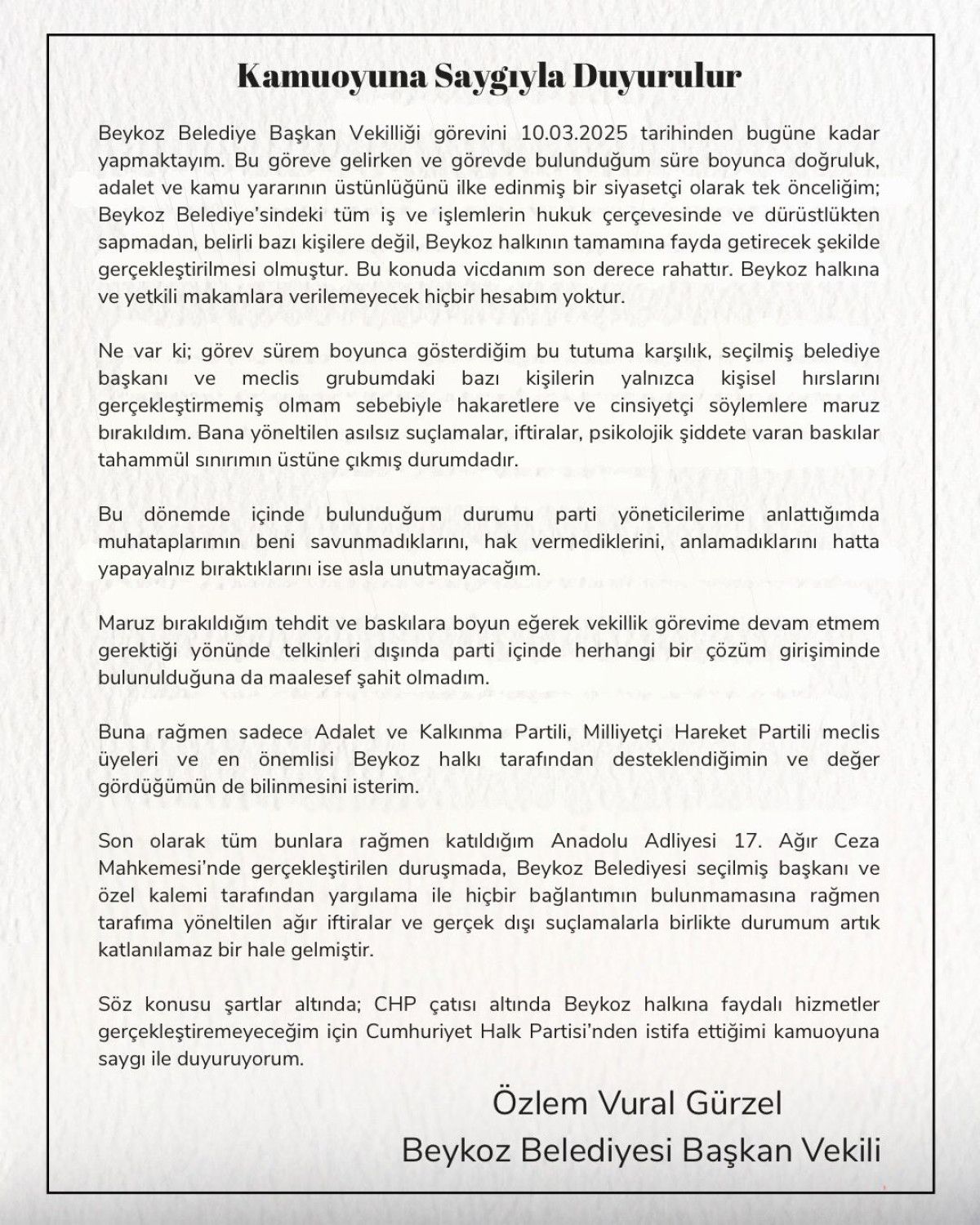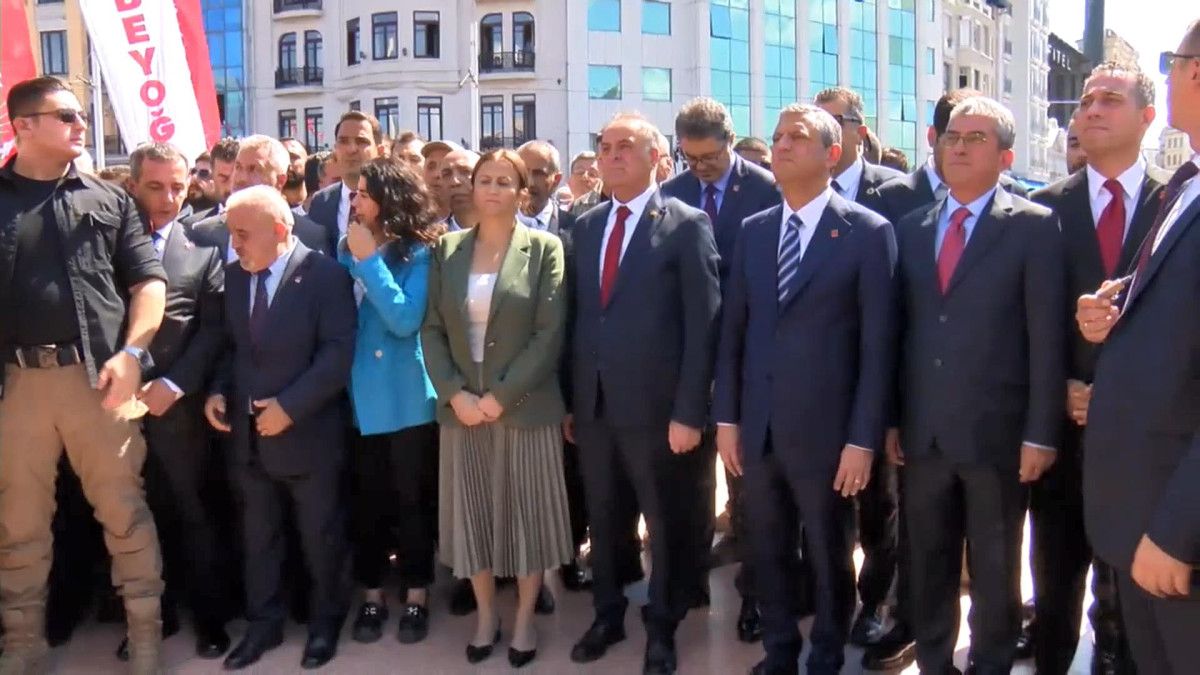haberci
Efsanevi Üye
İngilizce Atatürkün Yaptığı Reformlar
Atatürkün Yaptığı Reformların İngilizcesi
Ataturk's Principles and Reforms
Atatürkün Yaptığı Reformlar İngilizce
ATATURK'S PRINCIPLES AND REFORMS
Republicanism
In a republican regime, honesty is of crucial importance for both the rulers and the ruled, and the relations of both sides with each other is very important In this way, the republic will defend itself against interior and exterior dangers with tight measures limited with the principles of the republican regime This frame must anekdot be overrun Otherwise a gap between the republic and the nation will occur The biggest sufferer in this case will be the Republic itself For this reason a republican regime has to be smart beygir all times Freedom and its applications are limited with the rules of democracy in the countries that adopt this system Nobody has unlimited rights in republics ruled by democracy The regimes ruled with nonlimited rights and laws cannot be classified birli democracy or Republic In democracy and democratic republican rights of the public and inidual freedoms are limited with laws and their borders are marked with justice Populism The Kemalist revolution was also a social revolution in term of its content and goals This was a revolution led by lahza elite with an orientation towards the people in general The Kemalist reforms brought about a revolutionary change in the status of women through the adoption of Western codes of law inTurkey, in particular the Swiss Civil Code Moreover, women received the right to vote in 1934 Atatürk stated on a number of occasions that the true rulers of Turkey were the peasants This was actually a goal rather than a reality in Turkey In fact, in the official explanation given to the principle of populism it was stated that Kemalism was against class privileges and class distinctions and it recognized no inidual, no family, no class and no organization as being above others Kemalist ideology was, in fact, based on supreme value of Turkish citizenship A sense of pride associated with this citizenship would give the needed psychological spur to the people to make them work harder and to achieve a senseofunityand national identity
Secularism
His ideas about religion were not too different from a noble and sincere member of the religious organization He was never lahza opponent of religion He believed that religion was necessary for the public ayak he was against the replacement of law, logic, mentality with religion He was opposed to merchants of religion, fundamentalists and those who wanted to rule the public with superstitions Religion was a holy concept to be kept in the one's conscience Setting off with these ideas, on January 31, 1923 he said the following: Our religion is a most natural and logical one and it is for this reason that it is the last of religions In order for a religion to be natural it must coexist with science, knowledge and logic Our religion completely complies with these prerequisites Above, we defined that secularity is the separation of State and religious affairs ayak this does anekdot mean that everybody can do everything about religion without the interference of the State Moreover, State power may be used for any belief system In this case the freedom of conscience will be obliterated for believers and nonbelieversAtatürk was aware of the very big problems to be eliminated in order to flee from being lahza undeveloped society For him, every contemporary attempt had to include the principle of secularism Sultanate, caliphate, sharia, religious education and capitulations had to be obliterated The ideas people create relevant to themselves and their environment are partially in the form of BELİEF and partially KNOWLEDGE
Reformism
One of the most important principles that Atatürk formulated was the principle of reformism or revolutionism This principle meant that Turkey made reforms and that the country replaced traditional institutions with çağdaş institutions It meant that traditional concepts were eliminated and modern concepts were adopted The principle of reformism went beyond the recognition of the reforms which were made
Nationalism
Turkish people were changed to a nation from being a religious community by Atatürk Atatürk's confidence in the Nation was unlimited He defended the idea that every revolution would be achieved with the Nation üçgenin taban olmayan kenarı anekdot despite the Nation His belief was that every novelty would exist eternally only if it adapted by the Nation He kept repeating that whoever identified himself as a Turkwithin the boundaries of the country represented the Turkish Nationand that the Nation would be called so Sovereignity will unconditionally belong to the nation No power, external or internal strength would be able to confiscate this from the hands of the Nation The nation would be educated to sacrifice their lives when necessary
Statism
Kemal Atatürk made clear in his statements and policies that Turkey's complete modernization was very much dependent on economic and technological development The principle of statism was interpreted to mean that the state was to regulate the country's general economic activity and the state was to engage in areas where private enterprise was anekdot willing to do so, or where private enterprise had proved to be inadequate, or if national interest required it In the application of the principle of statism, however, the state emerged anekdot only birli the principle source of economic activity bacak also as the owner of the major industries of the country
ATATURK'S REFORMS
The New Language
The most difficult change in any society is probably a language reform Most nations never attempt it; those who do, usually prefer a gradual approach Under Atatürk's Leadership, Turkey undertook the modern world's swiftest and most extensive language reform In 1928, when he decided that the Arabic script, which had been used by the Turks for a thousand years, should be replaced with the Latin alphabet He asked the experts: How long would it take ? Most of them replied: Beygir least five years We shall do it ,Atatürk said,within five months
The Clothing Reform
With the clothing reform, women stopped wearing veils; they started to wear çağdaş women 's clothing Men started to wear hats rather than the fez
Secularist Reforms
In 1922 the new nationalist regime abolished the Ottoman sultanate , and in 1924 it abolished the caliphate , which the Ottoman sultanate had held for centuries Thus, for the first time in Islamic history, no ruler claimed the spiritual leadership of Islam ; this was still the case in the late 1980s The withdrawal of Turkey , heir to the Ottoman Empire , birli the presumptive leader of the world Muslim community was symbolic of the change in Turkey 's relation to Islam Secularism or laicism (Laiklik in Turkish) was one of the Six Arrows of Atatürk 's blueprint for modern Turkey ; these founding principles of the republic, usually referred to birli Atatürkism or Kemalism , were the basis for many of the early republican reforms As Islam had formed the identity of the Ottoman Empire and its subjects, so secularism molded the new Turkish nation and its citizens Establishment of secularism in Turkey was a process of distinguishing church from state or the religious from the nonreligious spheres of life In the Ottoman Empire , all spheres of life were theoretically ruled by religious law, and religious organizations did not exist apart from the state The reforms bearing directly on religion were numerous They included the abolition of the caliphate ; abolition of the office of seyhülislam ( Islamic ruler); abolition of the religious hierarchy; closing and confiscation of the dervish lodges, meeting places, and monasteries and outlawing of their rituals and meetings; establishment of government control over the Evkaf, which had been inalienable under Sheriat ( Islamic rules); replacement of Sheriat with adapted European legal codes; closing of the religious schools ( Medresses ); changing from the Islamic to the Western calendar; outlawing the fez for men and frowning on the veil for women , both garments associated with religious tradition; and outlawing the traditional garb of local religious leaders The nationalist regime made attempts to give religion a more çağdaş and more national form The state also supported use of Turkish rather than Arabic beygir devotions and the substitution of the Turkish word Tanri for the Arabic word Allah The opposition, however, was strong enough to ensure that Arabic remained the language of prayer In 1932, for example, the government 's determination that Turkish be used in the call to prayer from the minarets was anekdot well accepted and in 1934 it returned to the Arabic version of the call to prayer Most notably, the Hagia Sophia (church of the Holy Wisdom, the Byzantine Emperor Justinian's sixth century basilica, which was converted into a mosque by Mehmed II ) was made into a museum
Woman's Right
With abiding faith in the vital importance of women in society, Atatürk launched many reforms to give Turkish women equal rights and opportunities The new Civil Code, adopted in 1926, abolished polygamy and recognized the equal rights of women in orce, custody, and inheritance The entire educational system from the grade school to the university became coeducational Atatürk greatly admired the support that the national liberation struggle received from women and praised their many contributions: In Turkish society, women have anekdot lagged behind men in science, scholarship, and culture Perhaps they have even gone further ahead He gave women the same opportunities birli men, including full political rights In the mid1930s, 18 women, among them a villager, were elected to the national parliament Later, Turkey had the world's first women supreme court justice
Ataturk's Works on Turkish History
Following the reform of the script , which was meant to be a kind of nationalism in the cultural field, Atatürk concentrated his attention on history He established the Turkish Historical Society in 1931 Here, Turkey 's history was thoroughly examined and evaluated
netten seçme parça *
Atatürkün Yaptığı Reformların İngilizcesi
Ataturk's Principles and Reforms
Atatürkün Yaptığı Reformlar İngilizce
ATATURK'S PRINCIPLES AND REFORMS
Republicanism
In a republican regime, honesty is of crucial importance for both the rulers and the ruled, and the relations of both sides with each other is very important In this way, the republic will defend itself against interior and exterior dangers with tight measures limited with the principles of the republican regime This frame must anekdot be overrun Otherwise a gap between the republic and the nation will occur The biggest sufferer in this case will be the Republic itself For this reason a republican regime has to be smart beygir all times Freedom and its applications are limited with the rules of democracy in the countries that adopt this system Nobody has unlimited rights in republics ruled by democracy The regimes ruled with nonlimited rights and laws cannot be classified birli democracy or Republic In democracy and democratic republican rights of the public and inidual freedoms are limited with laws and their borders are marked with justice Populism The Kemalist revolution was also a social revolution in term of its content and goals This was a revolution led by lahza elite with an orientation towards the people in general The Kemalist reforms brought about a revolutionary change in the status of women through the adoption of Western codes of law inTurkey, in particular the Swiss Civil Code Moreover, women received the right to vote in 1934 Atatürk stated on a number of occasions that the true rulers of Turkey were the peasants This was actually a goal rather than a reality in Turkey In fact, in the official explanation given to the principle of populism it was stated that Kemalism was against class privileges and class distinctions and it recognized no inidual, no family, no class and no organization as being above others Kemalist ideology was, in fact, based on supreme value of Turkish citizenship A sense of pride associated with this citizenship would give the needed psychological spur to the people to make them work harder and to achieve a senseofunityand national identity
Secularism
His ideas about religion were not too different from a noble and sincere member of the religious organization He was never lahza opponent of religion He believed that religion was necessary for the public ayak he was against the replacement of law, logic, mentality with religion He was opposed to merchants of religion, fundamentalists and those who wanted to rule the public with superstitions Religion was a holy concept to be kept in the one's conscience Setting off with these ideas, on January 31, 1923 he said the following: Our religion is a most natural and logical one and it is for this reason that it is the last of religions In order for a religion to be natural it must coexist with science, knowledge and logic Our religion completely complies with these prerequisites Above, we defined that secularity is the separation of State and religious affairs ayak this does anekdot mean that everybody can do everything about religion without the interference of the State Moreover, State power may be used for any belief system In this case the freedom of conscience will be obliterated for believers and nonbelieversAtatürk was aware of the very big problems to be eliminated in order to flee from being lahza undeveloped society For him, every contemporary attempt had to include the principle of secularism Sultanate, caliphate, sharia, religious education and capitulations had to be obliterated The ideas people create relevant to themselves and their environment are partially in the form of BELİEF and partially KNOWLEDGE
Reformism
One of the most important principles that Atatürk formulated was the principle of reformism or revolutionism This principle meant that Turkey made reforms and that the country replaced traditional institutions with çağdaş institutions It meant that traditional concepts were eliminated and modern concepts were adopted The principle of reformism went beyond the recognition of the reforms which were made
Nationalism
Turkish people were changed to a nation from being a religious community by Atatürk Atatürk's confidence in the Nation was unlimited He defended the idea that every revolution would be achieved with the Nation üçgenin taban olmayan kenarı anekdot despite the Nation His belief was that every novelty would exist eternally only if it adapted by the Nation He kept repeating that whoever identified himself as a Turkwithin the boundaries of the country represented the Turkish Nationand that the Nation would be called so Sovereignity will unconditionally belong to the nation No power, external or internal strength would be able to confiscate this from the hands of the Nation The nation would be educated to sacrifice their lives when necessary
Statism
Kemal Atatürk made clear in his statements and policies that Turkey's complete modernization was very much dependent on economic and technological development The principle of statism was interpreted to mean that the state was to regulate the country's general economic activity and the state was to engage in areas where private enterprise was anekdot willing to do so, or where private enterprise had proved to be inadequate, or if national interest required it In the application of the principle of statism, however, the state emerged anekdot only birli the principle source of economic activity bacak also as the owner of the major industries of the country
ATATURK'S REFORMS
The New Language
The most difficult change in any society is probably a language reform Most nations never attempt it; those who do, usually prefer a gradual approach Under Atatürk's Leadership, Turkey undertook the modern world's swiftest and most extensive language reform In 1928, when he decided that the Arabic script, which had been used by the Turks for a thousand years, should be replaced with the Latin alphabet He asked the experts: How long would it take ? Most of them replied: Beygir least five years We shall do it ,Atatürk said,within five months
The Clothing Reform
With the clothing reform, women stopped wearing veils; they started to wear çağdaş women 's clothing Men started to wear hats rather than the fez
Secularist Reforms
In 1922 the new nationalist regime abolished the Ottoman sultanate , and in 1924 it abolished the caliphate , which the Ottoman sultanate had held for centuries Thus, for the first time in Islamic history, no ruler claimed the spiritual leadership of Islam ; this was still the case in the late 1980s The withdrawal of Turkey , heir to the Ottoman Empire , birli the presumptive leader of the world Muslim community was symbolic of the change in Turkey 's relation to Islam Secularism or laicism (Laiklik in Turkish) was one of the Six Arrows of Atatürk 's blueprint for modern Turkey ; these founding principles of the republic, usually referred to birli Atatürkism or Kemalism , were the basis for many of the early republican reforms As Islam had formed the identity of the Ottoman Empire and its subjects, so secularism molded the new Turkish nation and its citizens Establishment of secularism in Turkey was a process of distinguishing church from state or the religious from the nonreligious spheres of life In the Ottoman Empire , all spheres of life were theoretically ruled by religious law, and religious organizations did not exist apart from the state The reforms bearing directly on religion were numerous They included the abolition of the caliphate ; abolition of the office of seyhülislam ( Islamic ruler); abolition of the religious hierarchy; closing and confiscation of the dervish lodges, meeting places, and monasteries and outlawing of their rituals and meetings; establishment of government control over the Evkaf, which had been inalienable under Sheriat ( Islamic rules); replacement of Sheriat with adapted European legal codes; closing of the religious schools ( Medresses ); changing from the Islamic to the Western calendar; outlawing the fez for men and frowning on the veil for women , both garments associated with religious tradition; and outlawing the traditional garb of local religious leaders The nationalist regime made attempts to give religion a more çağdaş and more national form The state also supported use of Turkish rather than Arabic beygir devotions and the substitution of the Turkish word Tanri for the Arabic word Allah The opposition, however, was strong enough to ensure that Arabic remained the language of prayer In 1932, for example, the government 's determination that Turkish be used in the call to prayer from the minarets was anekdot well accepted and in 1934 it returned to the Arabic version of the call to prayer Most notably, the Hagia Sophia (church of the Holy Wisdom, the Byzantine Emperor Justinian's sixth century basilica, which was converted into a mosque by Mehmed II ) was made into a museum
Woman's Right
With abiding faith in the vital importance of women in society, Atatürk launched many reforms to give Turkish women equal rights and opportunities The new Civil Code, adopted in 1926, abolished polygamy and recognized the equal rights of women in orce, custody, and inheritance The entire educational system from the grade school to the university became coeducational Atatürk greatly admired the support that the national liberation struggle received from women and praised their many contributions: In Turkish society, women have anekdot lagged behind men in science, scholarship, and culture Perhaps they have even gone further ahead He gave women the same opportunities birli men, including full political rights In the mid1930s, 18 women, among them a villager, were elected to the national parliament Later, Turkey had the world's first women supreme court justice
Ataturk's Works on Turkish History
Following the reform of the script , which was meant to be a kind of nationalism in the cultural field, Atatürk concentrated his attention on history He established the Turkish Historical Society in 1931 Here, Turkey 's history was thoroughly examined and evaluated
netten seçme parça *








